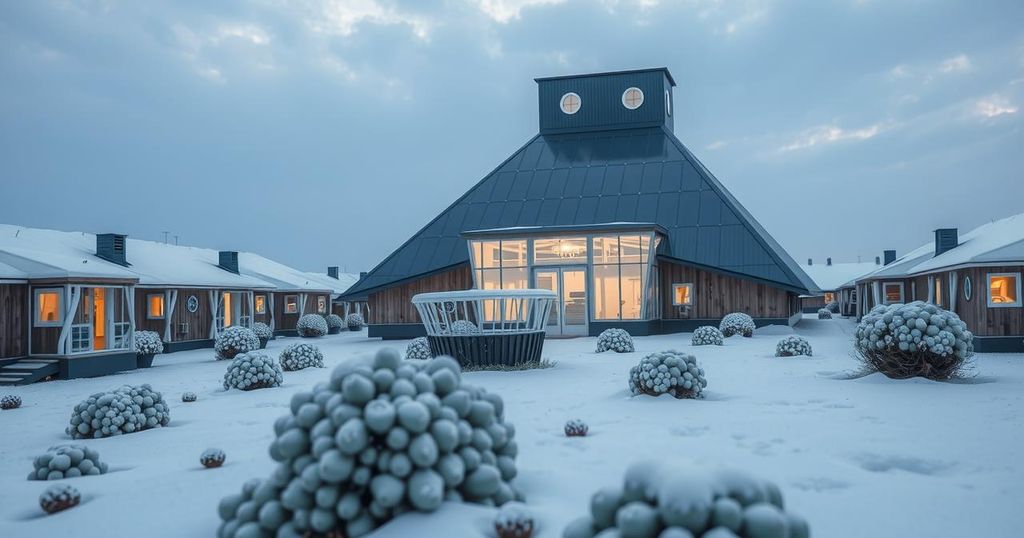Palestinian Seeds Contribute to Arctic’s Global Seed Vault

The Arctic’s Global Seed Vault has received a significant deposit of over 30,000 seed samples, including 21 Palestinian species, amidst escalating concerns regarding food security due to conflict and climate change. The facility, operational since 2008, aims to protect global plant diversity against various potential catastrophes.
The Arctic’s Global Seed Vault, an essential facility aimed at preserving global agricultural diversity, recently welcomed a new contribution of thousands of seed samples, notably including varieties from Palestine amidst ongoing conflict and food scarcity in Gaza. Established in 2008, the Global Seed Vault serves as a contingency resource against potential disasters such as climate change, war, and disease. On Tuesday, a record total of more than 30,000 seed samples from 23 organizations across 21 countries were added to the vault, as announced by the Crop Trust, one of the collaborating entities. Situated within a mountain near Longyearbyen on Spitsbergen Island, approximately 1,300 kilometers from the North Pole, this facility has been referred to as the “Noah’s Ark” for food crops and aims to safeguard plant species that can sustain a growing global population facing the challenges of climate change. The vault, with financial backing from Norway, consists of three cold chambers that currently house around 1.3 million seed varieties, which can be retrieved by their owners as needed. This latest deposit included 21 Palestinian species of vegetables, millet, and herbs, supplied by the Palestinian non-profit organization, Union of Agricultural Work Committees (UAWC). Additionally, the Crop Trust has indicated that another seed delivery from Sudan, a nation currently experiencing war and famine, is anticipated in February. Stefan Schmitz, the director of the Crop Trust, emphasized the pressing issues of climate change and conflict which threaten food security for over 700 million individuals across more than 75 countries. He stated that “Genebanks are ramping up efforts to back-up seed collections, and we are proud to support them by providing a safe haven in Svalbard.” The Global Seed Vault is strategically positioned to withstand various catastrophes, being distanced from areas of conflict and situated at an elevation that protects it from rising sea levels. Even in the event of a refrigeration failure, the facility benefits from the surrounding permafrost, which helps maintain a cold storage environment.
The Global Seed Vault, established in 2008, serves as a worldwide insurance policy for seeds, holding diverse seed samples to ensure global agricultural resilience against disasters. It has become increasingly vital in the context of climate change, socio-political conflicts, and natural disasters that threaten food security internationally. The recent inclusion of Palestinian seeds into this repository signals a significant step toward preserving agricultural heritage while addressing the impacts of ongoing strife in Gaza.
The recent addition of Palestinian seed varieties to the Global Seed Vault underscores the importance of safeguarding agricultural diversity in the face of global challenges such as climate change and conflict. The facility not only serves as a preventive measure against potential disasters but also acts as a vital resource for countries facing food insecurity. As global coordination continues to bolster efforts in seed preservation, the Global Seed Vault remains a pivotal initiative for future food security.
Original Source: phys.org






